Celebrating World Bee Day: Preserving Nature’s Pollinators in the UK
Introduction:
World Bee Day is observed on May 20th every year. It is an international initiative dedicated to raising awareness about the vital role of bees and other pollinators in our ecosystems. Given our rich biodiversity and agricultural landscapes this day holds significant importance in the UK. Here we will take a quick look at the significance of World Bee Day in the UK. We will explore its impact, and highlight quotes and statistics that shed light on the urgency of protecting these crucial pollinators.
The Importance of Bees:
Bees play an essential role in pollination, facilitating the reproduction of plants, fruits, vegetables, and nuts. In fact, one out of every three bites of food we consume is a result of bee pollination. Beyond their role in food production, bees also contribute to maintaining healthy ecosystems by pollinating wildflowers, supporting countless animal species and helping maintain biodiversity.
“If the bee disappeared off the face of the Earth, man would only have four years left to live.” – Albert Einstein
How you can help –
..create a wildflower garden with Meadowmat Wildflower Turf or by seed.
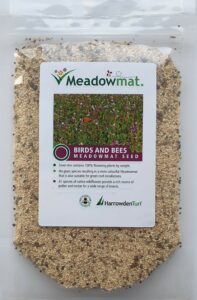 |
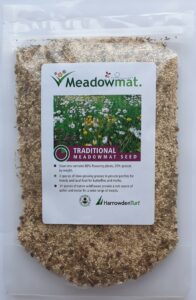 |
 |
 |
Challenges Facing Bees in the UK:
Unfortunately, bees in the UK face numerous challenges that threaten their populations:
- Habitat Loss:
- Firstly, the decline in wildflower meadows and the loss of diverse foraging habitats have deprived bees of essential sources of nectar and pollen.
- Pesticides:
- Secondly, the use of certain pesticides, including neonicotinoids (banned in the UK) has been linked to bee population declines, affecting their reproductive capabilities and overall health.
- Climate Change:
- Finally, altered weather patterns, increased temperatures, and unpredictable flowering seasons disrupt bee foraging and nesting patterns. This leads to food scarcity and reduced reproductive success.
- “Bees are a cornerstone of our agricultural industry, and their welfare is crucial for the health of our ecosystems.” – Michael Gove, former UK Secretary of State for Environment, Food, and Rural Affairs
Statistics:
- According to Friends of the Earth, the UK has lost 97% of its wildflower meadows since the 1930s, severely impacting bee populations.
- The Bumblebee Conservation Trust reports that two species of UK bumblebees have become extinct in the last 80 years, and a further eight are at risk of extinction.
- The Centre for Ecology & Hydrology highlights that between 1980 and 2013, the UK experienced a 55% decline in managed honeybee colonies.
Conservation Efforts and Initiatives:
Recognizing the urgency of preserving bees, the UK has implemented various initiatives:
- Pollinator Action Plan:
- The UK government’s strategy focuses on creating and preserving habitats for pollinators, enhancing pesticide regulation, and raising public awareness.
- B-Lines:
- The Bumblebee Conservation Trust’s B-Lines project establishes “insect pathways” across the country. These create a network of habitats that enable bees and other pollinators to thrive.
- Bee-Friendly Farming:
- Farmers and landowners are encouraged to adopt bee-friendly practices, such as planting wildflowers, providing nesting sites, and minimizing pesticide usage.
So, World Bee Day serves as a powerful reminder of the vital role bees play in our ecosystems and food systems. Here in the UK, with our diverse landscapes and agricultural heritage, we recognise the need to protect these incredible pollinators. Through our collective efforts, conservation initiatives, and public awareness, we must safeguard bees and ensure a sustainable future.
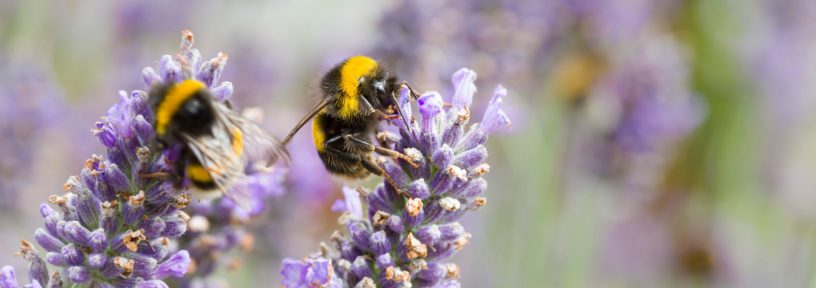
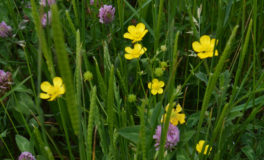 How Traditional Meadowmat Supports Wildlife
How Traditional Meadowmat Supports Wildlife 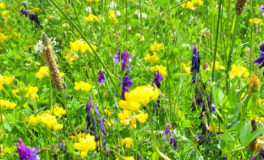 Attracting wild birds to the farm
Attracting wild birds to the farm 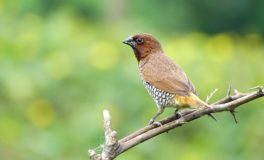 Birds in decline
Birds in decline 

